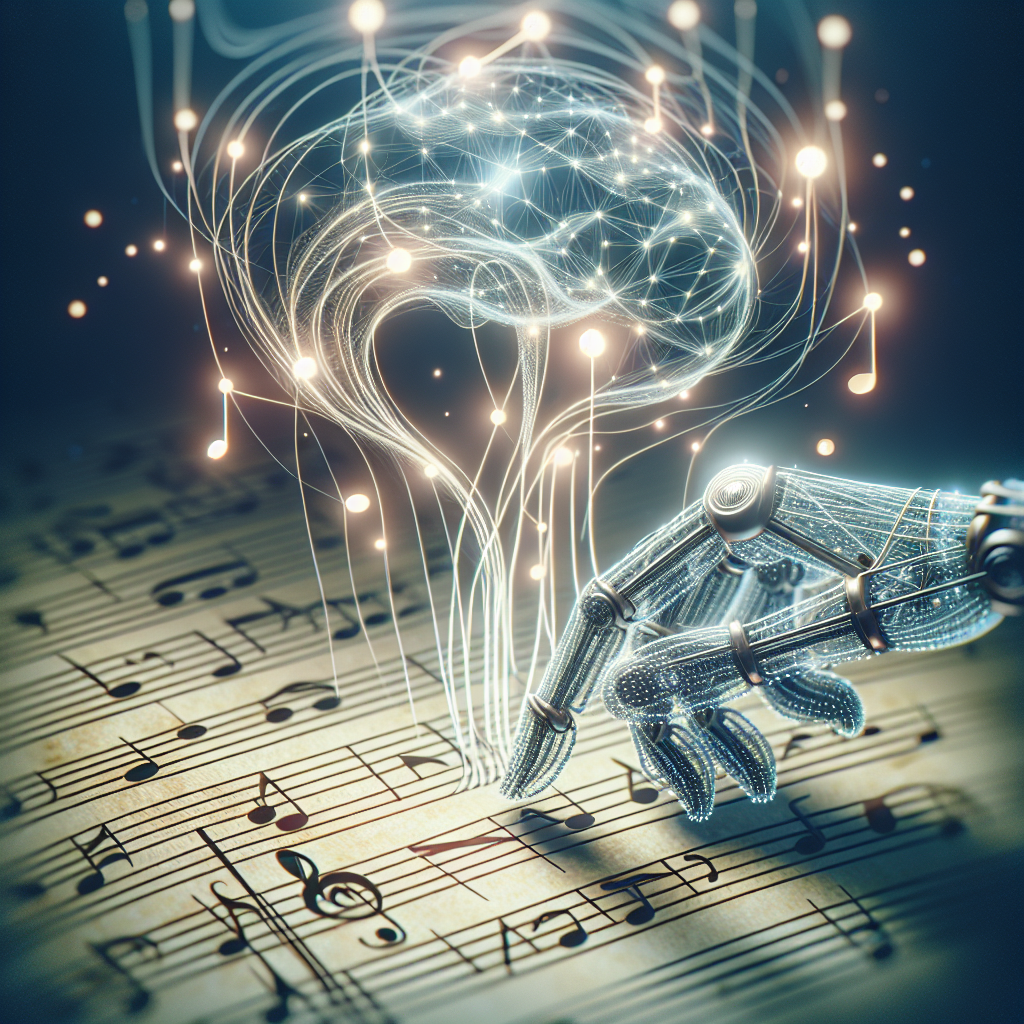The Intersection of AI and Music Aesthetics
Artificial intelligence (AI) has made significant advancements in recent years, revolutionizing various industries from healthcare to finance. One area that has seen significant innovation is the field of music. AI technologies are now being used to compose music, analyze musical patterns, and even create new musical genres. This intersection of AI and music aesthetics has sparked a debate among musicians and music enthusiasts about the impact of AI on the creative process and the future of music.
AI in Music Composition
One of the most exciting applications of AI in music is its ability to compose original pieces. AI algorithms can analyze vast amounts of musical data to create melodies, harmonies, and rhythms that are both innovative and pleasing to the ear. This has led to the creation of entire albums composed by AI, such as “Hello World” by the AI-powered music platform AIVA.
While some argue that AI-generated music lacks the emotional depth and creativity of human composers, others believe that AI can enhance the creative process by providing new perspectives and ideas. Composer and AI expert David Cope, for example, has used AI to generate music in the style of famous composers like Bach and Beethoven, sparking new interpretations of classical music.
AI in Music Analysis
AI is also being used to analyze musical patterns and structures, providing valuable insights for musicians and music theorists. For example, AI algorithms can analyze the harmonic progressions in a piece of music, identify recurring motifs, and even predict the emotional impact of a musical passage. This information can help musicians understand the underlying principles of music theory and improve their compositions.
One of the most well-known examples of AI in music analysis is Google’s Magenta project, which uses machine learning algorithms to study musical patterns and create new compositions. Magenta has produced impressive results, from generating original jazz tunes to harmonizing melodies in various styles.
AI in Music Generation
AI is not only being used to compose and analyze music but also to generate new musical genres and styles. For example, the AI-powered music platform Amper Music allows users to create custom music tracks by selecting parameters like mood, tempo, and instrumentation. This has democratized the music production process, allowing anyone to create professional-quality music without extensive training or experience.
Another example is the AI-generated album “I AM AI” by Taryn Southern, which features songs entirely composed and produced by AI. These AI-generated tracks span different genres, from pop to electronic, showcasing the versatility and creativity of AI in music production.
The Future of AI and Music Aesthetics
The intersection of AI and music aesthetics raises important questions about the role of technology in the creative process. While some fear that AI will replace human composers and musicians, others see AI as a tool to enhance and expand the boundaries of music creation.
One of the key debates in this area is whether AI can truly understand and replicate the emotional depth and complexity of human music. While AI algorithms can analyze musical patterns and structures, they may struggle to capture the nuances of human emotions and experiences that are often conveyed through music. This raises concerns about the authenticity and soulfulness of AI-generated music, as well as the potential loss of artistic expression in a world dominated by algorithms.
On the other hand, proponents of AI in music argue that technology can augment human creativity by providing new tools and resources for musicians to experiment with. AI can generate innovative ideas, suggest new musical directions, and even collaborate with human composers to create unique compositions. This collaborative approach to music creation highlights the potential of AI to inspire and challenge musicians to think outside the box and push the boundaries of traditional music genres.
FAQs
Q: Can AI truly understand and replicate the emotional depth of human music?
A: While AI algorithms can analyze musical patterns and structures, they may struggle to capture the nuances of human emotions and experiences that are often conveyed through music. AI-generated music may lack the authenticity and soulfulness of human compositions.
Q: How can AI enhance the creative process for musicians?
A: AI can provide new perspectives and ideas for musicians to explore, suggest innovative musical directions, and even collaborate with human composers to create unique compositions. AI algorithms can also analyze musical patterns and structures, providing valuable insights for musicians and music theorists.
Q: Will AI replace human composers and musicians in the future?
A: While AI has the potential to generate original music and create new musical genres, it is unlikely to replace human composers and musicians entirely. The human element of creativity, emotion, and expression in music is irreplaceable and essential to the art form.
Q: What are the potential benefits of AI in music production?
A: AI in music production can democratize the music creation process, allowing anyone to create professional-quality music without extensive training or experience. AI can also generate new musical genres and styles, expanding the boundaries of music aesthetics and creativity.
In conclusion, the intersection of AI and music aesthetics is a fascinating and complex field that raises important questions about the role of technology in the creative process. While AI has the potential to enhance and expand the boundaries of music creation, it also challenges us to reconsider the authenticity and soulfulness of AI-generated music. As technology continues to evolve, musicians and music enthusiasts will need to navigate the opportunities and challenges of AI in music to shape the future of music aesthetics.

